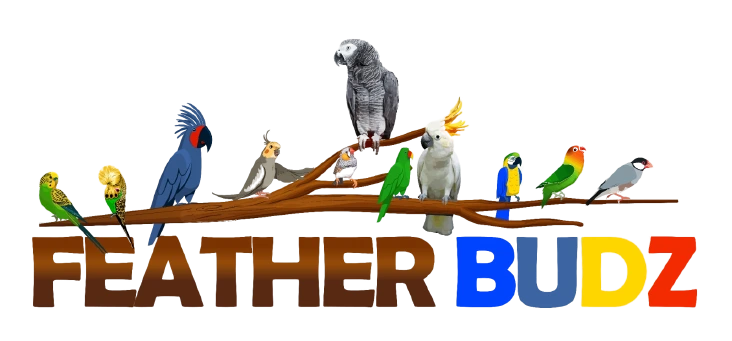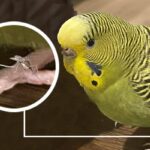Lovebirds are delightful and colorful companions that bring joy to pet lovers’ lives. As a responsible lovebird owner, I tend to get confused in my early days as to what to feed my lovebirds and what not. Then my journey of researching food for my lovebird started.
What Foods Can Lovebirds Not Eat?
Therefore I have curated a list of “What foods can lovebirds not eat?” In this blog post, we will explore the dietary basics of lovebirds, identify toxic foods to avoid, discuss the risks of high-fat or high-salt foods, highlight the dangers of harmful additives, and provide a list of safe and nutritious foods for your feathered buddies.
Let us ensure we are feeding our lovebirds a diet that promotes their health and improves their life.
Lovebird Dietary Basics
Lovebirds require a balanced and nutritious diet to thrive. Their diet should consist of a variety of fresh fruits, vegetables, leafy greens, and a quality pellet or seed mix.
Providing a diverse range of foods ensures they receive the necessary vitamins, minerals, and nutrients for optimal health.
Toxic Foods for Lovebirds
Certain foods are toxic and should never be offered to lovebirds. These foods can have severe consequences and may lead to illness or even death. It is essential to keep these items far away from your lovebird’s reach.
Fruits Seed and Pits that Are Toxic for Your Lovebirds
Fruits are a healthy treat for your lovebirds. However, sometimes it becomes dangerous for your lovebird’s health if you do not correctly feed them because the majority of fruits has seed and pits in them that are dangerous for your lovebird’s health.
Seeds of some fruits contain substance like cyanide that is highly toxic for your lovebirds. Below are the fruits and seeds/pits which you should avoid to feed your lovebirds.
- Apple seed
- Plum pits
- Pear seed
- Peach pits
- Cherry pits
- Mango Pits
Not all fruit seeds are toxic for your lovebird’s health. Some fruits that have seeds that are fine to feed them are;
- Melon seed
- Berries seed
- Pomegranate seed
- Grapes seed
Before feeding fruits to your lovebirds always keep in mind to remove all the dangerous seeds/pits from it and serve them only the flesh of all fruits in small pieces so they can enjoy and get healthy nutrients from it.
Toxic Vegetables for Lovebirds
Vegetables are the most important part of the lovebird’s diet because vegetables are healthy and delicious for your parrots. However, some vegetables are bad for your lovebird’s health as they might cause upset stomach, food poisoning, liver failure, and anemia.
These are vegetables you must avoid to feed your lovebirds.
- Garlic
- Onion
- Mushrooms
- Tomatoes
These are the vegetables that can help your lovebirds to fill nutritional gaps that a diet consisting of pellets seed mix might not be able to provide.
- Cucumbers
- Broccoli
- Spinach
- Artichoke
Salt Content Food Toxic For Lovebird Health
Salt is not good for human health if they consumed it in high amounts. The same goes for small birds like lovebirds and budgies. Even a small amount of salt is dangerous for lovebird health because they are small and their body mechanism cannot deal with salt.
Salt can cause problems like dehydration, electrolyte imbalance, and kidney failure in lovebirds. Avoid all types of food that contains salt like crackers and salted nuts.
Fluids That Are Toxic For Lovebird Health
All birds love to drink only plain water in the wild, and cage birds also need plain water because it is a necessity. Do not serve any other fluid to your lovebirds that affect their health and your lovebird becomes sick.
These are the fluids you should avoid giving your lovebirds.
- Soft drinks
- Milk
- Caffeine drinks like coffee, tea, and energy drinks
- Alcoholic drinks
Spicy Food Toxic For Lovebirds
Spicy food like onion and garlic is very dangerous for lovebirds because it can cause many health problems to your lovebirds like sickness, diarrhea, ulcers, and body weakness.
Healthy Treats For Lovebirds
Aside from the main pallets or seed mix diet, there are some other healthy treats you can offer to your lovebird so they can get all the extra nutrients from it.
- Corns
- Lettuce
- Bananas
- Kiwi fruit
- Pears
- Endive
- Chickweed
- Unsalted nuts in limited quantity
- Thyme
- Basil
- Alfalfa
- Dill
- Mint
- Carrots
- Egg food
- Beetroot
Monitoring and Adjusting the Diet
As a responsible lovebird owner, it is essential to monitor your birds’ health and behavior concerning their diets. Observe any changes in appetite, digestion, or overall health.
If needed, consult with an avian veterinarian to make adjustments to their diet based on individual preferences and specific nutritional needs.
Conclusion
Understanding which foods can be harmful to lovebirds is crucial for their health. By avoiding toxic foods, high-fat or high-salt foods, foods with harmful additives, and those with high oxalic acid or toxic components.
You can provide a safe and nutritious diet to your feathered buddies. Remember to prioritize variety, moderation, and balance when feeding your lovebirds, ensuring they enjoy a long and healthy life by your side.









